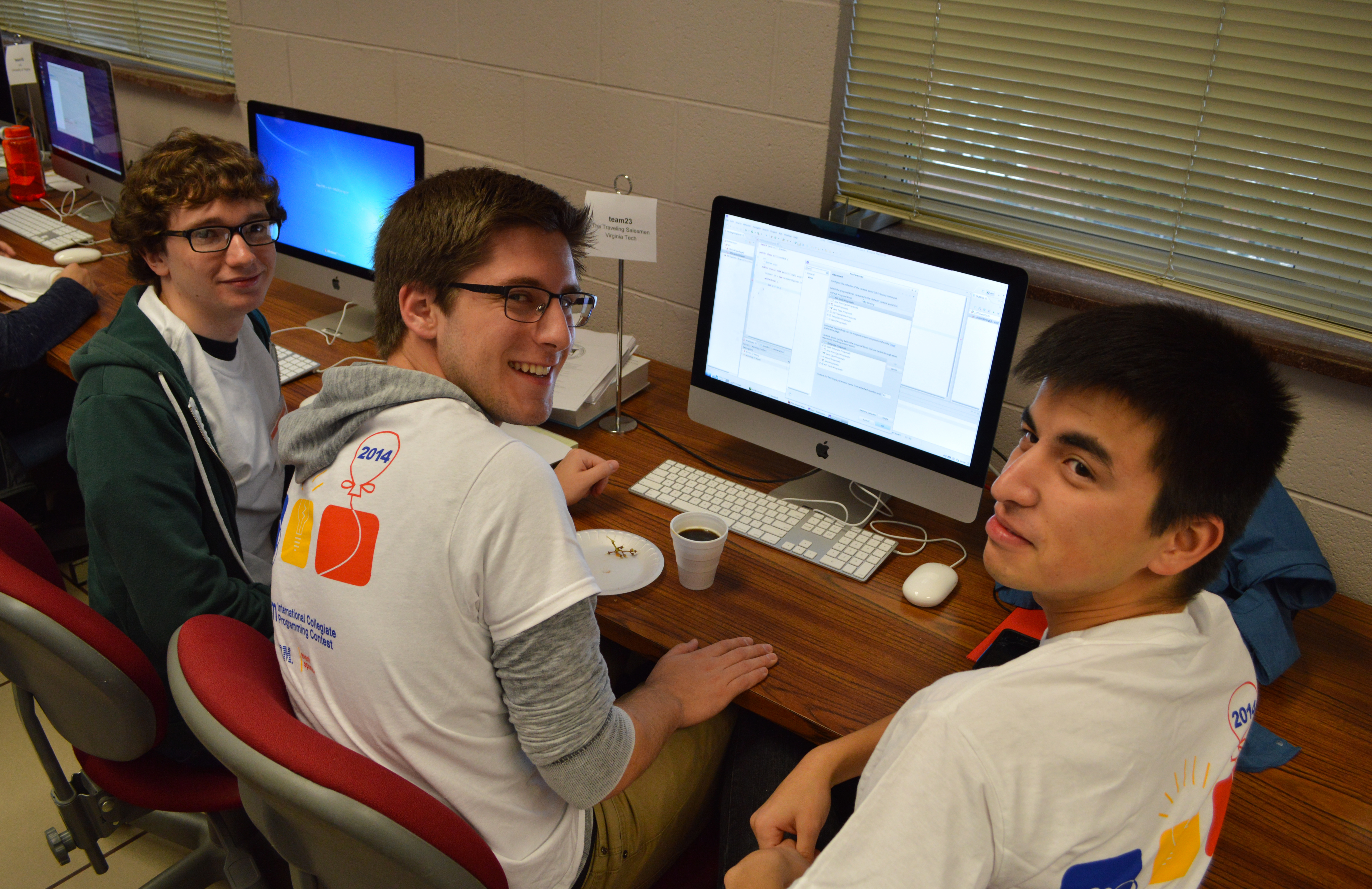Computer science team bound for Morocco following top-tier regional competition finish

Three Virginia Tech Department of Computer Science students and their faculty adviser will head to Morocco in 2015 for the World Finals of the Association of Computing Machinery’s International Collegiate Programming Competition.
Students comprising the team The Traveling Salesmen placed third in the recent 2014 Mid-Atlantic U.S. regional competition finals, held at seven sites across the region, including one at nearby Radford University.
Approximately 190 teams competed, from dozens of universities including Delaware, Maryland, Washington, D.C., southern New Jersey, North Carolina, eastern Pennsylvania, Virginia and West Virginia. Multiple regional competitions are held throughout the United States and Canada, according to organizers of the competition, known as ACM-ICPC.
The Traveling Salesmen team includes junior Benjamin Scott Pruett of Mechanicsville, Virginia, senior Nick Sharp of Sterling, Virginia, and junior Miraziz Yusupov of Chantilly, Virginia, who has a double major in business economics in the Pamplin College of Business.
The trio will travel to Marrakech, Morocco, for the May 16-21, 2015, ICPC Word Finals, which the association says encourages “creativity, teamwork, and innovation in building new software programs, and enables students to test their ability to perform under pressure.”
Traveling with the team will be coach and faculty advisor Godmar Back, an associate professor of computer science, part of the College of Engineering.
In all, Virginia Tech fielded eight teams, each comprised of three students, for the regional competition. Three teams, in addition to the Traveling Salesmen, finished in the Top 20, placing 11th, 15th, and 16th, respectively. North America will send 22 teams in all to Morocco in 2015.
During competition, student teams are assigned eight algorithmic problems for which they must develop and code efficient solutions. Teams do not know beforehand which input will be given to their programs.
The input is chosen by judges to test correctness and efficiency of the submitted programs and often includes corner cases or large inputs which must be processed correctly and within the allotted time limit. Teams are ranked by how many problems they are able to solve, with ties broken based on the number of minutes elapsed for each solved problem.
Last year, Back coached a computer science team that placed second in regionals and traveled to Ekaterinburg, Russia. Before that, Virginia Tech’s last participation in finals came in 2007.
“The skills learned in these competition are skills students need to have if they want to be successful in their job hunts,” Back said, adding that timed algorithmic-problem tests are regular parts of job and internship interviews with technology firms such as Google and Microsoft. “The students who are successful in these types of competitions often do well in job interviews.”
Participating in his second Word Finals, Sharp confirmed: “Your ability to solve these problems is much more important than your Grade Point Average, background, or really anything else.”
Yusupov said the day after his team was selected for the World Finals, he received an email from a major software producer asking him to apply for its upcoming summer internship program.
Back’s student teams train regularly for competition, including 5-hour practices held on Saturdays. There, students complete problem sets used in prior competitions. “We can compare our performance to how well we would have done in those past competitions,” said Back. Additionally teams practice on their own, learning speed and efficiency of problem solving.
Last year, more 32,000 students from 2,300 universities representing 100 countries competed in regional competitions for a slot at the 2014 World Finals. The roster of teams for the 2015 World Finals is still being finalized as of press time, said Back.




